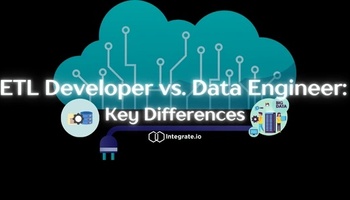APIs have become an essential part of modern tech. Not only do they make it easy to tap into tech resources, but they also make it possible for developers to create apps that can work with other services. But what exactly is an API and how does it work? See this overview to learn more about this integral tech aspect.
What Is an API?
An API or Application Programming Interface allows multiple applications to talk to one another. Essentially, an API comprises a set of functions that allows for applications to access data and interact with external software, operating systems, and microservices. Through these capabilities, APIs act as a transportation method for web tools and software applications.
Related Reading: Everything You Need to Know About API Integration
How Do APIs Work?
For understanding how APIs work, it's best to liken APIs to that of a translator who allows two people to communicate even though they don't speak the same language. Essentially, the API works as a middleman between two different machines or applications that are trying to share information, share data, or complete a specified task. Read on to learn more about how APIs work, what types of APIs there are, and some common API integrations.
Common Types of APIs
The following are the most common types of APIs:
- REST APIs: Representational State Transfer or REST APIs deliver data using the lightweight JSON format. Almost all public APIs use REST API technology because of its ability to perform quickly, its overall reliability, and its ability to be scaled easily without affecting the system.
- SOAP APIs: Simple Object Access Protocol or SOAP APIs are a bit more complex than the popular REST APIs. SOAP APIs use XML to transfer data and requires more upfront information regarding security. The SOAP APIs are not as accessible or easy to scale as REST APIs.
- Browser APIs: The browser APIs use JavaScript to manipulate HTML to create a unique experience within a browser. Browser APIs are often used to play music, display intricate animations, or react to specific keyboard or mouse inputs.
- iOS/Android APIs: The iOS/Android APIs are mobile platforms that allow developers to build custom experiences for end-users. These APIs are often used to transmit data to the device's hardware and use different sensors from the hardware, such as the phone's camera.
Related Reading: Integrate.io's REST API Connector
Common API Integrations
The following are some commonly used websites and applications that use API integrations:
- Travel Booking Websites and Apps: Many travel booking websites and apps use API integrations to collect flight and hotel availabilities from third-party providers. The API sends information back and forth between the travel website and the third-party providers, allowing customers to get the best deals for their upcoming trip without having to book hotels or flights on multiple websites or apps.
- Banks and Financial Institutions: Banks and financial institutions use API integrations to send and receive data regarding a customer's credit card, checking account, transactions, payments, and information of that nature.
- Weather Reporting Apps: The apps you use to check your local weather also utilize API integrations. The weather apps use APIs to collect weather data from third-party platforms and then have it sent and processed in their own platform through an API.
- Entertainment Streaming Services: Popular entertainment streaming services like Netflix and Spotify also use APIs to distribute music and video content to their millions of consumers.
Related Reading: Top 100 API Integrations
Common Benefits of APIs for Business
The following are some of the top benefits APIs can bring to companies:
- Increased Productivity: When a business uses an API, it allows the enterprise to prototype and create new products quickly. Faster development speeds ensure that APIs will help to increase the overall productivity of any business.
- Improves Marketing: The use of APIs also helps to improve marketing campaigns as APIs help companies target the right customers and reach new markets.
- Saves on Cost: With APIs cutting out the need for developers to start every project from the ground up, costs will be lessened through the use of APIs.
- Encourages Innovation: APIs also help to encourage innovation throughout companies as new products and strategies can be introduced quickly through the faster development speeds that APIs offer.
How Integrate.io Can Help
If you're looking to incorporate API integrations into your company, Integrate.io can help. From automation to scalability to communication to redacted errors, there are a variety of benefits that API integration with Integrate.io can provide to your company. Ultimately, Integrate.io API allows you to create clusters, run jobs, monitor the progress of these jobs, and terminate any jobs or clusters that are running.
Are you ready to see what benefits the Integrate.io API can bring to your company? Contact our team today to schedule a 14-day demo or pilot and see how we can help you reach your goals.









